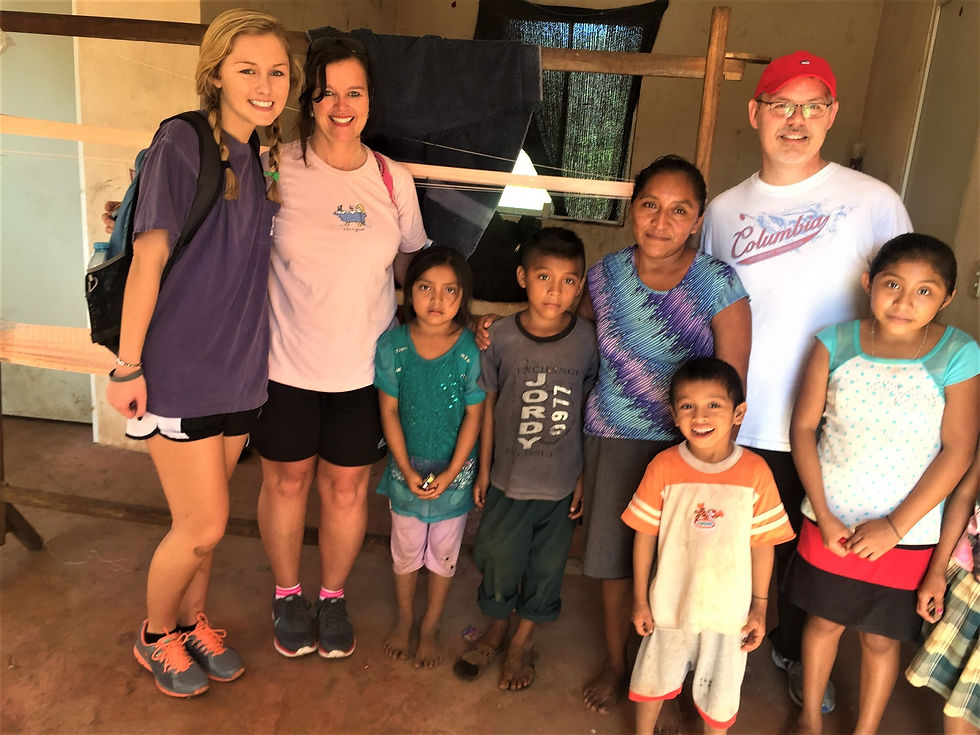lessons from mexico: incredibly blessed
- Bill Fortenberry
- Sep 13, 2022
- 3 min read

JANUARY 2017 - Two days after Christmas I and 24 members of my church family traded the excess of the holidays for a week of pared-down living in the interior of the Yucatan peninsula.
I thought I was going there to help the people in three small communities three or four hours inland from Cancun. My goal was to bring their stories back to my hometown and share them. It’s been nearly three weeks since I got back home, and this is as far as I have gotten. It’s not that there are no stories. It’s that at first, I had to come to terms with the truth that found out more about myself than the people I met.
In the days leading up to our departure, I was squeezing the life out of every minute, fretting over time with my family, blood pressure checks and Christmas to-do lists. Christmas day was a mountain of wrapping paper, a rich meal with way more food than my little family could eat and a leisurely, $60 night at the movies.
It took only one day in Mexico to make all that seem decadent, excessive and complicated. I quickly lost track of what day of the week it was. I don’t recall ever looking at my watch or checking the calendar. Time just didn’t matter. Communication with the rest of the world also lost importance. There was no Wi-Fi, and in the span of three towns, about 10 kilometers, there were three places where you could get cell phone service—along a single wall at the Mission House facility where we slept and ate, standing on top of the Catholic church in Ichmul (that’s a no, since I’m afraid of heights) and while resting your phone precariously on a guide wire in San Francisco. With the exception of talking to my wife and kids back home, connecting with the outside world was not nearly as important as connecting with the people right in front of me.
Brenda's home in San Francisco. The
palapa on the left is her kitchen.
The people I met were mostly of Mayan descent. They live in one-room concrete structures and palm-roofed stick houses—called palapas, where they weave hammocks and make the tortillas that are a staple of their diet. The women cook over an open fire in a palapa designated as the kitchen. The only furniture in the living spaces are the hammocks that they weave to make a living, and the occasional, rare chair. These hammocks serve as beds, sofas and chairs, even shelving, and the looms they make them on are as common in this part of Mexico as refrigerators are in America. In fact, the only refrigerator I saw in Mexico was the one at Mission House.
One of the hammock weavers, Brenda, told me she makes just 140 pesos, about $7, every 15 days, for the three hammocks she makes. The hammocks are picked up by a supplier and sold in the tourist markets of Cancun and Playa del Carmen. She has 6 children. She and her older children share a single pair of flip-flops. Her younger children share a second pair. And, when we asked her how we could pray for her, she didn’t ask for material things or more money or a position. She asked for health for her family.
Wow.
I’ve been bemoaning our kitchen cabinets and dishwasher. The kitchens I saw were a pile of wood, a basin of water and a flat surface. I get frustrated that my family of four has to share three cars. I didn’t visit a single home in Mexico that had even one car. I just bought a new pair of tennis shoes, they would join my current pair, my four pair of dress shoes, my sandals and a pair of Sanuks. New tennis shoes now seem selfish and indulgent.
The first lesson of my Mexico experience is that the most important people in my life are the people God puts in front of me, and His expectation is for me to give my undivided attention to them with His purposes in mind. The second lesson is that I am incredibly blessed with resources, health and opportunity. And, God’s expectation is for me to use those blessings for His purpose.
Comments